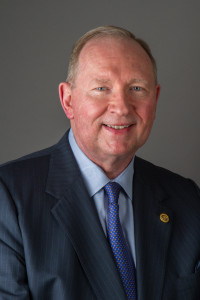– John A. Frost
 Any consideration of truthful conclusions necessarily focuses thought on conclusions which are not truthful. A better way is to identify fallacies. Bear with me as this discussion may delve into the mysterious workings of the mind, logic and the realm of faith, belief and minutia of the meaning of words.
Any consideration of truthful conclusions necessarily focuses thought on conclusions which are not truthful. A better way is to identify fallacies. Bear with me as this discussion may delve into the mysterious workings of the mind, logic and the realm of faith, belief and minutia of the meaning of words.
Let me illustrate by an introduction to Informal Fallacies. In logic, an argument is assumed to be true provided the content of the argument is true. There is the argument from ignorance: this flaw makes the assumption that a claim is either true or false because it has not been proven either true or false or cannot be proven one way or another. There are two examples of this fallacy which easily come to mine: surveys and weather. It is a fallacy to conclude that a survey is true based only on the data collected in the survey. One should not conclude that a particular candidate will be elected by relying upon a survey which asks questions unrelated to the qualifications for the presidency. Relying on questions of likability, believability, honesty, or leadership ability may reveal a result which is not predictive of how a voter will vote, if they will vote or why they will vote. Surveys are interesting entertainment but should not be relied upon as the truthfulness of anything.
Predicting the weather by the utilization of massive data collection, both current and historical, when the variables are infinite makes the result only coincidentally related to the truth of weather forecasting. Often, it is pure luck or a meaningless assignment of a percentage of the probability of rain, ice or snow. How many times have we prepared for a sunny but windy day only to be surprised by a cold, calm ice storm wreaking havoc on power lines, trees and trips to the store. It is proper to refer to the “conditions” which may spawn a tornado. It is wise to be prepared but do not fret until you see the funnel cloud and hear the roar of the wind and see the debris falling from the sky.
This relates to the fallacy of wishful thinking. Wanting a thing to be true does not make it true. It may be true that global warming is occurring but it may take hundreds of years to be proven true. Even more remote is to draw the wishful conclusion that if such global warming were to occur that its cause was actions by badly behaving human beings. An appeal to scientists who disagree does not validate the wished for truth of the matter.
Often, one begins to believe in the truthfulness of a proposition if the assertion is made over and over again without challenge or proper authority. This is known as argument ad nauseam. Closely related is the argument by volume, i.e., if an assertion is drawn out with vague references and compounded by discussion of meaningless unrelated topics, it must be true.
Consider the correlative-based fallacies. Correlation does not prove causation. Just because two variables are correlated does not prove that one causes the other. This is often the underpinning of analysis of stock market trends and economic news. How often do we observe the market go up at the same time that positive economic news is broadcast. And vice versa, how often do we observe the market go down at the same time that negative economic news is broadcast. It is a fallacy to conclude that there is a causal relationship. It is only tangential truth. Another name for this is the co-incidence fallacy. Of course, hours and hours of broadcast time has been filled with this type of fallacious speech. How many hours have been dedicated to the supposed effect on the market of a change in the interest rate policy of the Federal Open Market Committee. Some conclude the market will go up and others say the market will go down. Neither one will necessarily be correct as interest rates are only one data point in an infinite number of data points influencing the judgment of investors at any given moment in time. Whatever the market does, do not succumb to this fallacy. Wouldn’t it be ironic if the market were to be unchanged at the close on the day the anticipated rate change is announced? (Oops, that was wishful thinking after all!)
By now, you are probably wondering what goes on in the mind of Big John Frost. Let me assure you, the muddled minds of many a thinker have been turned to jelly by this idea of Truth.
